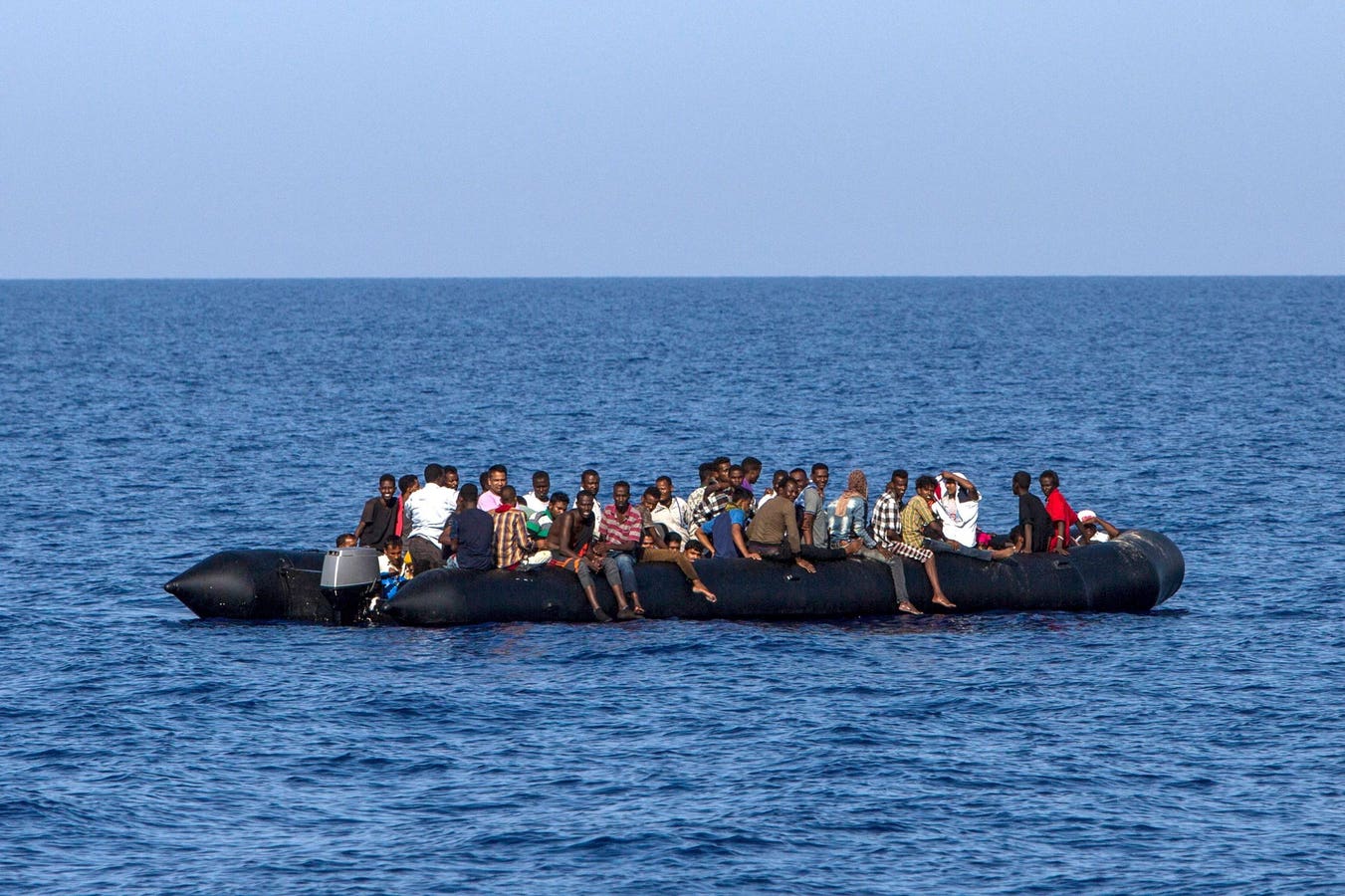People waiting to be rescued by Italian coast guard in the Mediterranean Sea on August 6, 2017. … More (Photo by ANGELOS TZORTZINIS / AFP) (Photo by ANGELOS TZORTZINIS/AFP via Getty Images)
AFP via Getty Images
The European Union has named seven countries it considers safe enough to deport rejected asylum seekers back to. It comes amid a charged political atmosphere over irregular migration in the bloc, as multiple countries push to speed up deportations, or ‘returns.’
The European Commission, the executive arm of the EU, announced its plans to establish ‘an EU list of safe countries of origin’ which will include Kosovo, Bangladesh, Colombia, Egypt, India, Morocco and Tunisia. The practical effect of this list is that people from those countries will likely have their asylum applications rejected, and are likely to see the process expedited, with a view to deporting people back as soon as possible.
Speeding up asylum processes and deportations has been on the agenda of many countries and policymakers around the EU for a long time. Certain EU member states have pursued this unilaterally. Greece and Italy most notable have established their own lists of ‘safe countries’ in an attempt to deport people back to their countries of origin, or in the case of Italy, send them to Albania for processing (and likely subsequent deportation.)
Both countries – who have long been on the ‘frontline’ of irregular migration, receiving the overwhelming majority of people in recent decades – have seen their attempts to use safe country lists stymied by their own courts and rulings from the European Court of Justice. They along with other countries have long called for a harmonized deportation regime in the EU, and in anticipation of an overhauled system due to come into effect in 2026, the Commission has acquiesced to these demands by publishing the new safe countries list. This will, in theory, make it easier for countries to speed up asylum processes and send people back.
“Making asylum procedures faster and more efficient is a core objective of the Pact on Migration and Asylum agreed last year,” said the Commission’s Henna Virkkunen. “We want to advance the implementation of key provisions, equipping Member States with additional tools to streamline asylum processing.”
The ‘safety’ of the seven countries on the list is, despite the Commission’s designation as such, highly debatable. Among the seven, for instance, are Bangladesh and Egypt, from where hundreds of thousands have fled in recent years amid political repression, gender-based and anti-LGBTQ+ discrimination and organized crime violence. Tunisia features as well, despite becoming infamous in recent years for violent and widespread political repression, as well as rampant violence against Black African migrants in particular.
The selection and assessment criteria for inclusion on this list is unclear, though the Commission says their choices are based on analysis from EU bodies such as the EU Agency for Asylum as well as individual member states and the UN’s refugee agency. The list in theory can be revised, with other countries added to it or the current ones removed, depending on these somewhat opaque evaluations.
There likely will be legal complications emerging from this safe country list, if it is implemented by individual member states for the purpose of deporting people. The EU’s own humanitarian and legal frameworks, as well as international ones, typically prohibit what is known as refoulement, or sending people back to places where they likely will face danger. That said, the Commission’s tacit endorsement of deportations by establishing this list may give more weight to countries trying to send people back where they came from, regardless of the consequence.
